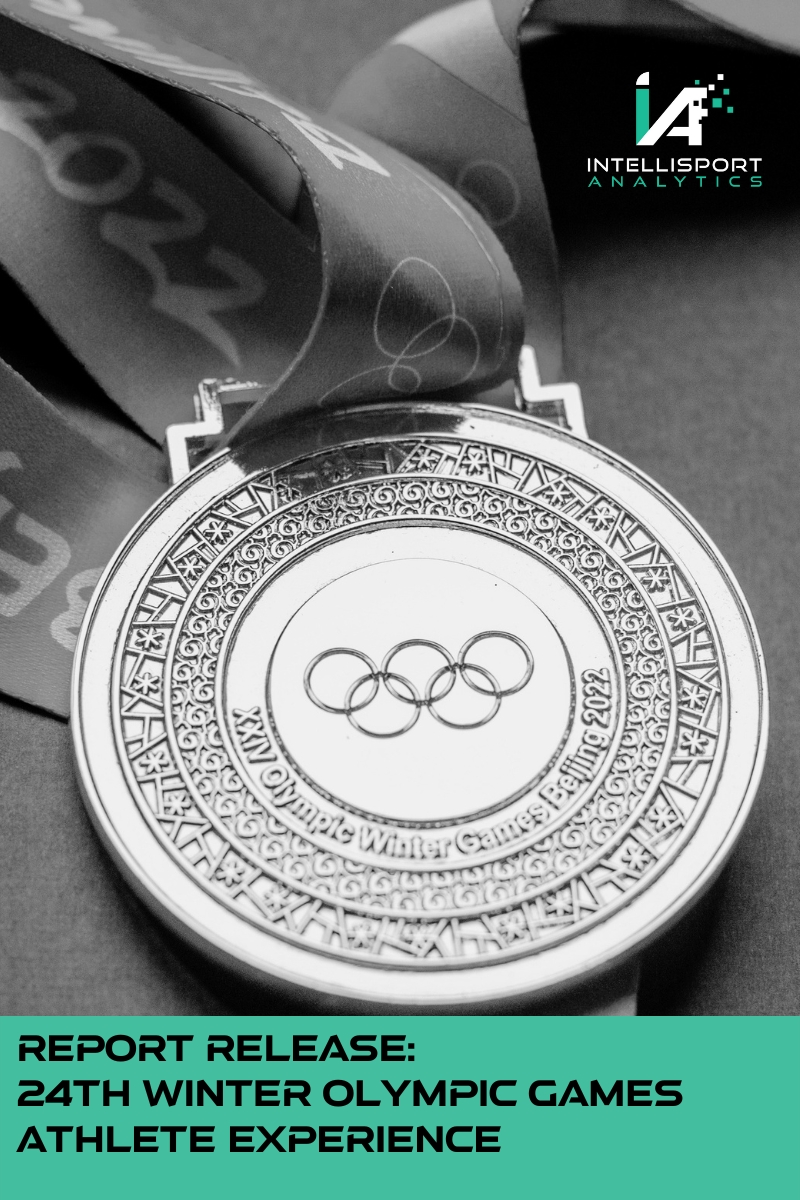For more than a year, IntelliSport Analytics studied the athlete experience at the 24th Winter Olympic Games that took place in February 2022. This press release provides a snapshot into the study and the findings of the report. Click here to read the report’s full findings and recommendations:
Following the conclusion of the 24th Winter Olympic Games in Beijing, China, IntelliSport Analytics commissioned a study to to examine the experiences of athletes. In total, 2,895 athletes were invited to participate in the study, garnering 232 respondents (8%), of which 161 completed the entire survey (5%).
The study examined: (1) athletes’ awareness of and perceptions of various Olympic Games attributes (competition formats, atmosphere, access to resources, training and competition environments, etc.); (2) the impact of Covid-19; (3) the awareness of and influence of the Olympic Principles; (4) political and social issues during the Olympic Games; and (5) the perception of performance enhancing drug use.
The study revealed several important findings:
The experiences of men and women athletes were mostly the same, but there were significant differences between how younger (under 25 years old) and older athletes (25 years and older) experienced the games. The significant differences in experiences between age groups are grounded in their rating of the International Olympic Committee’s (IOC) Olympic Principles, where younger athletes reported higher ratings of the Principles. Despite younger athletes having a more favorable opinion of the Principles, both older and younger athletes rated half of the Principles below a mean top-box (agree or strongly agree) score of 50%. The low rating of the IOC’s Principles indicates a gap between the IOC’s implementation of the Principles and the athletes’ perception and experience of the Principles.
Covid-19 defined much of the experiences of the athletes at these Olympic Games. Disruptions to travel, practice and competition, obtrusive socialization restrictions, stringent testing, among other factors altered the Olympic Games like no Games before them.
Several issues in sport also were defining features of these Olympic Games, namely politics and doping. The threat of war between Russia and Ukraine during the Games amplified the conflict over the Games’ political neutrality and the athletes’ right to self-expression. The wide differences in athlete responses reveal inadequacies of IOC policy, education, and leadership in guiding athletes on how to express their views when sport intersects with politics.
Doping at the Games became a flash point when a high profile athlete from the Russian Olympic Committee tested positive for a performance enhancing drug. This incident was the impetus for this study to examine athletes’ sentiment and perception of doping at the Games. The findings showed doping remains problematic for Olympic competition, but most likely is concentrated in specific sports.
To access the full report click here.
Contact IntelliSport Analytics at contact@intellisportanalytics.com to learn more about how we conduct research and provide strategic guidance for our clients to make meaningful organizational change.




